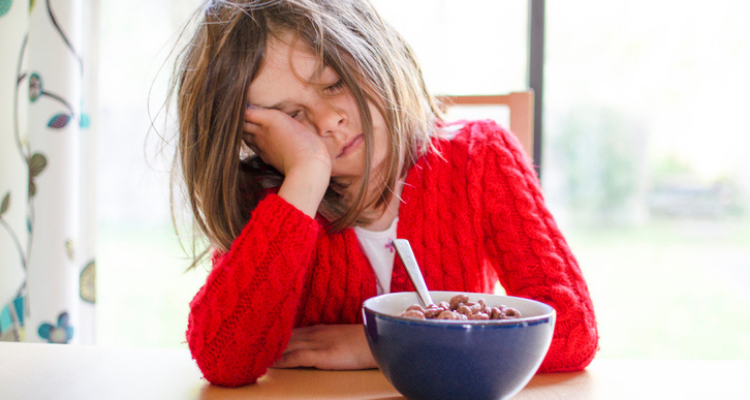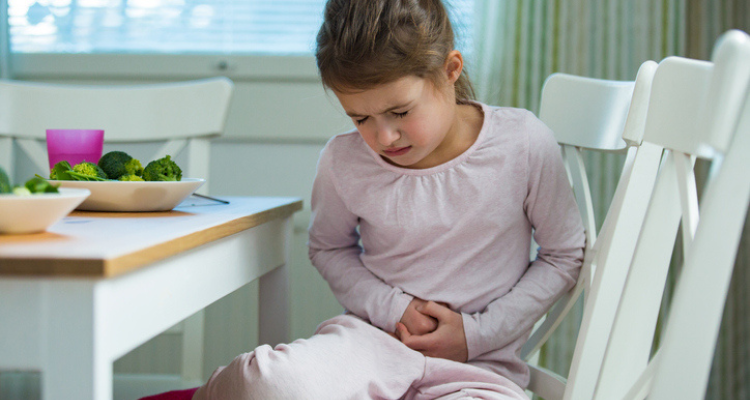
Excessive tiredness used to be a problem associated with aging. Now, doctors see a shocking number of parents seeking help for their tired children.
Why are our children becoming increasingly tired? While there might be an underlying medical issue, the factors most commonly contributing to excessive tiredness and lethargy in children are poor sleep, high stress, anxiousness, and a high glycemic diet.
Let’s explore why childhood tiredness is on the rise and what you can do to help your children regain their energy and optimize their health.

why is childhood tiredness so common?
Many causes of tiredness and lethargy in adults also affect children in age-specific ways. Similar to how adults in modern-day society are constantly on the go and often anxious, children also suffer from a lack of free time and increasing pressures to be productive and successful.
Trouble sleeping is a massive problem in the youth population, and its root causes are multi-layered. Increasing numbers of children at all ages struggle to relinquish the day and relax into sleep. This combination contributes to children who wake up feeling exhausted and are tired all day long but have trouble falling and staying asleep at night.
Ongoing stress and heightened anxiousness significantly contribute to a cortisol response and a cascade effect on hormones. While the term adrenal fatigue is somewhat controversial and challenging to prove in a lab, the reality is that when excessive demand is placed on the adrenal glands, both children and adults suffer the consequences. Tiredness, sluggishness, low mood, and poor sleep are typical results.
diet and lifestyle tips for tired kids
The following diet and lifestyle strategies can help children balance energy, manage stress, and improve sleep.
eat a diet for blood sugar support
A typical kid’s diet in the US consists primarily of high glycemic foods like white bread, white rice, cereals, granola bars, crackers, and fruit juice. Research shows a correlation between glucose levels and tiredness—a diet high in foods with a high glycemic load can significantly contribute to children’s inability to focus, along with feelings of being tired.[1] Foods high in sugar mimic the body’s stress response, and after eating things like cookies or ice cream, kids experience a brief spike in energy, followed by a crash.
Set your children up for success with a blood sugar-supporting diet. Strive to include a serving of protein, healthy fat, and a fruit or vegetable with each meal. Snacks rich in protein and good fats, such as hard-boiled eggs, cheese, nuts, guacamole with chopped carrots, or fruit with nut butter, will help your child maintain more stable energy levels throughout the day.
go outside
Spending time outdoors is linked with improved mental health, including feelings of anxiousness that contribute to sleeplessness and daytime tiredness.[2] Many child development experts share the profound benefits of outdoor play for physical health, self-confidence, and development. If you’re in a city without abundant nature, get creative with a game of tag at your local park, building a fort in the backyard, or family walks in the evening.
exercise
Studies show a solid connection between physical activity, mental health, and emotional health in children.[3] The type of exercise varies depending on a child’s interests and preferences. There’s no need to force kids into sports or other stress-inducing situations that don’t come naturally to them. If exercise isn’t already incorporated into your child’s daily routines, look for opportunities to take walks together, play outdoors, and find new, enjoyable ways to move.
reduce pressures
Children of all ages face more pressure than ever to be productive and successful. Teenagers often wake up at 6 a.m. for school, going from school to sports or other extracurricular activities, then returning home to do homework. This fast-paced lifestyle contributes to trouble sleeping and tiredness.
In young children, stressors might include tensions at home, family events like divorce or the birth of a sibling, or social dynamics at daycare or school. As children get older, they face pressure to get good grades, participate and excel in sports or other activities, and get into prestigious universities. Signs of stress in children might include increased anger and irritability, changes in normal behavior, appetite changes, trouble sleeping, and getting sick more often.
As a parent, consider ways that work for your family to decrease some of these modern-day stressors for your children. Speak with a professional if you need support.
allow for free time and free play
One way to decrease stress and lessen pressure on your child is by allowing for free time and free play. Quiet, unscheduled time allows for creativity and relaxation. Allow your kids to be bored, and try not to over-schedule their days.
limit screen time
Moderating screen time is paramount for all age groups. Studies show that excessive screen time can be detrimental to psychological wellbeing in kids of all ages, contributing to less emotional stability, lower self-control and self-esteem, difficulty making friends, and increased anxiousness.[4]
practice age-appropriate stress reduction techniques
Helping your child find ways to reduce stress is vital and will look very different for each child and age. Young children need support recognizing and labeling emotions without judgment, along with open dialogue about feelings paired with firm limits on activity. While yoga classes for children are a relatively new phenomenon, older kids might do well with short meditations, yoga, or Tai Chi.
acupuncture
Acupuncture
Some integrative practitioners report acupuncture as an effective complementary modality for children who have trouble sleeping. Studies also show that scalp acupuncture can help children with behavioral challenges improve their sleep.[5]
three supplements and herbs for tired children
Diet and lifestyle strategies to boost energy are often enough for children ten and under. Older children can sometimes benefit from certain supplements, along with diet and lifestyle changes that naturally support low mood and energy.
adaptogens
Adaptogenic herbs support healthy cortisol levels, the body’s primary stress hormone.* While giving relaxing herbs and supplements to tired children might seem counter-intuitive, helping them wind down and sleep well is fundamental to better daytime energy.
Ginseng, Rhodiola, and Chinese mushrooms are all excellent adaptogens that can be administered to children.* For small children, Chinese mushrooms are best cooked into a broth, which they can enjoy as a soup or cooked into other foods, like whole grains.
vitamin d
It’s essential to regularly test vitamin D levels, especially if your child struggles with tiredness. The sunshine vitamin plays a crucial role in the body, supporting a stable mood and decreasing overall anxiousness.*[6]
l-theanine
This amino acid found in black and green tea helps ease anxiousness, improve sleep, and boost focus and concentration in children.*
Any new supplements for children should be discussed with their provider beforehand.
final thoughts
If you’re worried about a tired child, you’re not alone. A growing number of parents are wondering about their child’s exhaustion and what they can do about it. Finding ways to reduce stressors and pressures—and helping children practice age-appropriate stress reduction techniques—is essential, Speak with your child’s integrative doctor about which supplements might be helpful for boosting energy and combating tiredness.

[1] https://journals.sagepub.com/doi/abs/10.1177/1099800419898002
[2] Pearson, D. G., & Craig, T. (2014). The great outdoors? Exploring the mental health benefits of natural environments. Frontiers in psychology, 5, 1178. https://doi.org/10.3389/fpsyg.2014.01178
[3] https://www.healio.com/news/psychiatry/20170106/exercise-may-prevent-depression-in-middle-childhood
[4] https://www.sciencedirect.com/science/article/pii/S2211335518301827
[5] https://juniperpublishers.com/ajpn/AJPN.MS.ID.555831.php
[6] https://www.tandfonline.com/doi/full/10.3109/01612840903437657
[7] Blessing, E. M., Steenkamp, M. M., Manzanares, J., & Marmar, C. R. (2015). Cannabidiol as a Potential Treatment for Anxiety Disorders. Neurotherapeutics : the journal of the American Society for Experimental NeuroTherapeutics, 12(4), 825–836. https://doi.org/10.1007/s13311-015-0387-1












.png)





